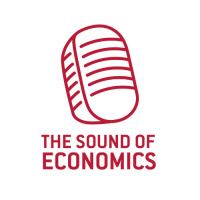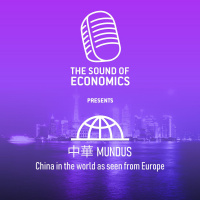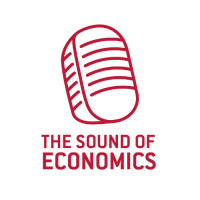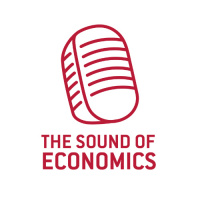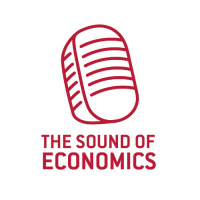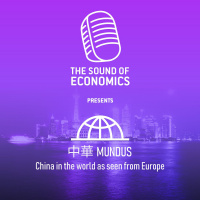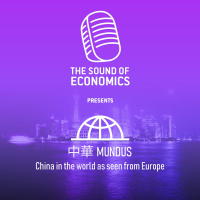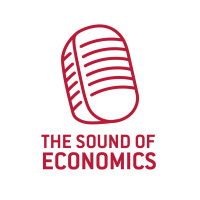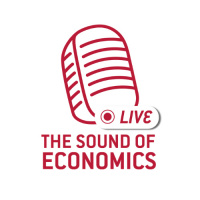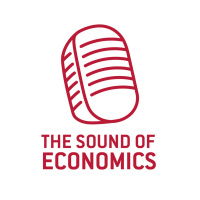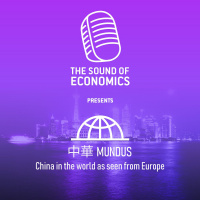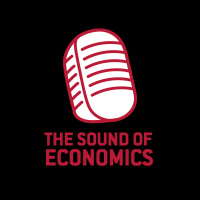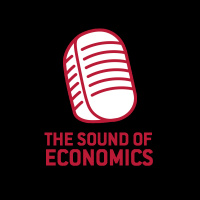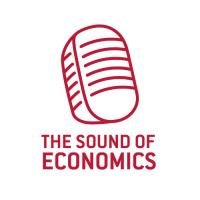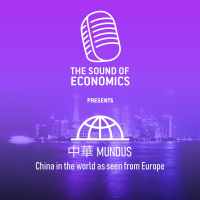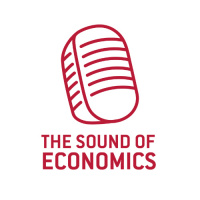Synopsis
Bruegel is the European think tank working in the field of international economics. Established in 2005, Bruegel is independent and non-doctrinal. It seeks to contribute to European and global economic policy-making through open, fact-based and policy-relevant research, analysis and debate.
Episodes
-
Reflections on COP27
23/11/2022 Duration: 42minIn this episode of the Sound of Economics Live, Giuseppe Porcaro invites John Murton, Johanna Nyman and Simone Tagliapietra look at what was said and decided at this year's COP27 in Egypt. What are the preliminary impressions? Are we delivering on the Paris Agreement and how efficient is COP in getting there? They discuss these and more questions while unpacking the meeting.
-
Is the EU fiscal rules reform going in the right direction?
22/11/2022 Duration: 50minOn 9 November, the European Commission presented its long-awaited proposal for a reformed EU economic governance framework. The proposal intends to focus on medium-term risks to debt sustainability and to allow flexibility to boost growth and investments and move away from yearly micro-management of unobservable public finance variables. Maria Demertzis invites Jeromin Zettelmeyer, Grégory Claeys and Zsolt Darvas to share their views on the reform proposal.
-
Lessons from China’s semiconductor technology push
16/11/2022 Duration: 37minFrom cars and phones to satellite technology, semiconductors play a key role in many of our modern utilities and consumer goods. As such, semiconductors are China’s main import item and an essential component of a lot of its exports. Since the US push to restrict this trade, China has been investing heavily on its semiconductor industry, to reduce their dependence on the rest of the world. In this episode of The Sound of Economics, Giuseppe Porcaro is joined by Bruegel’s Alicia García-Herrero and Jason Hsu, a Senior Research Fellow at The Ash Centre for Democratic Governance and Innovation Harvard Kennedy School, to discuss China’s semiconductor policies, as well as its implications and lessons for Taiwan and the rest of the world. This episode is part of the ZhōngHuá Mundus series of The Sound of Economics. ZhōngHuá Mundus is a newsletter by Bruegel, bringing you monthly analysis of China in the world, as seen from Europe. Sign up now to receive it in your mailbox!
-
Changing labour markets, changing social protection
09/11/2022 Duration: 30minSocial protection is the mechanism that addresses amongst other issues, poverty reduction, education, health, social inclusion, and empowerment. In the United States and in Europe social protections were initially designed between 1880 and 1945 with the full-time, dependent employee in mind. In this episode of The sound of economics, Giuseppe Porcaro invites Anke Hassel and Kathleen Romig to discuss the challenge that confronts the United States and Europe, in the context of a changing labour market and the increase in nonstandard work. This podcast was produced within the project "Transatlantic expert group on the future of work", with the financial support of the European Union. Its contents are the sole responsibility of Bruegel AISBL and The German Marshall Fund of the United States and do not necessarily reflect the views of the European Union.
-
The dominance of the platform economy
02/11/2022 Duration: 39minThe Internet was supposed to liberate us from powerful institutions. But the reality might be he who fights too long against dragons becomes a dragon himself. In this episode of the Sound of Economics, Giuseppe Porcaro and Fabian Stephany invite Vili Lehdonvirta to present his latest book, Cloud Empires, where he explains how Silicon Valley technologists end up recreating digital forms of the very institutions that they were trying to render obsolete. They also discuss the labour market. This podcast was produced within the project “Future of Work and Inclusive Growth in Europe“, with the financial support of the Mastercard Center for Inclusive Growth.
-
Is the world economy headed for recession?
26/10/2022 Duration: 37minIn this episode of The Sound of Economics, Maria Demertzis and Grégory Claeys are joined by Ayhan Kose, Chief Economist of Equitable Growth, Finance, and Institutions (EFI) and Director of the Prospects Group at the World Bank, and co-author of the report ‘Is a Global Recession Imminent?’. Together they look at the global trends of rising inflation and slowing growth, discuss whether the world is heading into a recession; or, if a recession is inevitable, whether a soft-landing would be possible and how it could be achieved. (This podcast was recorded on 6th October 2022)
-
Decoding China’s 20th Party Congress
18/10/2022 Duration: 31minThe 20th National Party Congress of the Chinese Communist Party commenced on 16 October and will run for seven days. The Congress takes place every five years and is the most important political event in the People’s Republic of China. Giuseppe Porcaro and Alicia Garcia-Herrero invite Chenggang Xu, Senior research fellow at Stanford Center on China’s Economy and Institutions to navigate the decisions that are to be taken in this gathering and whether they meet the predictions. This episode is part of the ZhōngHuá Mundus series of The Sound of Economics. ZhōngHuá Mundus is a newsletter by Bruegel, bringing you monthly analysis of China in the world, as seen from Europe. Sign up now to receive it in your mailbox!
-
China's rise in the Western Balkans
12/10/2022 Duration: 50minThe rise in Chinese influence in the Western Balkans over the last decade is among the most significant geopolitical developments in Europe. As an element of Beijing’s wide internationalisation efforts to expand its global footprint, the country has been working to improve its position in several key sectors, from energy and infrastructure to culture, education and media. A lot of these investments are linked to the Belt and Road initiative. Giuseppe Porcaro and Alicia García-Herrero invite Mira Milosevich-Juaristi to help navigate the Chinese investments in the Balkans and their strategic importance and what this means for Europe. This episode is part of the ZhōngHuá Mundus series of The Sound of Economics. ZhōngHuá Mundus is a newsletter by Bruegel, bringing you monthly analysis of China in the world, as seen from Europe. Sign up now to receive it in your mailbox!
-
Inequality across the atlantic
05/10/2022 Duration: 42minThe COVID-19 pandemic, Russian invasion of Ukraine, energy crisis and the resulting high inflation have created new worries about inequality on both sides of the atlantic. Labour markets and occupations have gone through profound changes as a result of technological progress, globalisation and changes to labour market institutions, among many other factors. In this episode of the Sound of Economics, Giuseppe Porcaro hosts Indivar Dutta-Gupta, President & Executive Director, CLASP Center for Law and Social Policy, and István György Tóth, Director of Tarki Social Research Institute, for a conversation about the evolving nature of inequality on both sides of the Atlantic, what are the drivers of this wedge and what policy tools are needed to address it. This was produced within the project "Transatlantic expert group on the future of work", with the financial support of the European Union. Its contents are the sole responsibility of Bruegel AISBL and The German Marshall Fund of the United States and do not
-
What should the European Political Community look like?
05/10/2022 Duration: 47minThe European Political Community is a new political grouping proposed by the French president Emmanuel Macron that would include the EU countries, the Balkans, and other nearby states including the United Kingdom. On 6 October 2022, the first meeting of this new configuration will take place. In this live podcast co-organised with Open society foundations and German Council on Foreign Relations, Giuseppe Porcaro invites Jean Pisani-Ferry, Daniela Schwarzer, Shahin Vallée, as well as Milica Delević and Hlib Vyshlinsky, to envision what this grouping should look like and its functions. Relevant publication: Mayer, F., J. Pisani-Ferry, D. Schwarzer and S. Vallée (2022) ‘Enlarging and deepening: giving substance to the European Political Community', Policy Contribution 15/2022, Bruegel
-
Learning from the European Central Bank's policy mistakes
28/09/2022 Duration: 40minIn July 2022, by the time the European Central Bank (ECB) lifted its deposit rate from negative to zero, headline inflation in the euro area had reached 8.9%. Irrespective of the drivers of inflation – a temporary supply shock or lasting demand shock – it is shocking that a central bank with a price stability mandate keeps its main interest rate negative while inflation accelerates that much. Something clearly went wrong. With the benefit of hindsight, it is easy to say that the ECB made mistakes. But should the ECB have acted differently, given the information available at the time of its monetary policy meetings? In this episode of the Sound of Economics, Bruegel Director Jeromin Zettelmeyer and Senior fellow Zsolt Darvas sit down to discuss the ECB’s six lapses in tackling inflation, uncertainties surrounding the euro area's economy and what could have been done differently.
-
Will Ukraine’s refugees return?
21/09/2022 Duration: 26minUkraine, a country of over 40 million people, has seen about 15% of its population flee the country. Will many that have fled Ukraine return, or will families eventually be reunited abroad, possibly implying an even greater inflow of Ukrainians into Europe and elsewhere when the war is over? Giuseppe Porcaro sits down with Pauline Weil to discuss the implications of Ukrainian refugees’ situation for Ukraine and its future reconstruction efforts, for receiving countries and for the EU Common European Asylum System, as analysed in her paper co-authored with Uri Dadush: ‘Will Ukraine’s refugees go home?' Check our special podcast series, War in Ukraine, which reflect on the implications of Russia’s war in Ukraine in EU energy storage, macroeconomic implications, international finance system and more.
-
Assessing the State of the Union 2022
14/09/2022 Duration: 43minOn 14 September 2022 Ursula von der Leyen, President of the European Commission, delivered the State of the Union address before the European Parliament. In this episode of The Sound of Economics Live, Giuseppe Porcaro hosts Maria Demertzis, André Sapir, Jeromin Zettelmeyer and Georg Zachmann to evaluate the State of the Union address, from the support to Ukraine, energy crisis, recovery plans, as well as the EU’s external policies.
-
Can China get its economy back on track?
14/09/2022 Duration: 33minChina’s GDP growth plummeted to only 0.4% YoY in Q2 2022, the worse performance after Q1 2020 when the first wave of COVID-19 hit Wuhan. Apart from the economic turbulence, a major political event to look out for is the 20th National Congress of the Chinese Communist Party, to be held on 16 October 2022. What should we expect from this gathering and what economic impact will it have? Giuseppe Porcaro discusses with Alicia García-Herrero and XU Sitao. This episode is part of the ZhōngHuá Mundus series of The Sound of Economics. ZhōngHuá Mundus is a newsletter by Bruegel, bringing you monthly analysis of China in the world, as seen from Europe. Sign up now to receive it in your mailbox!
-
Re-revisiting The European Union’s energy crisis
08/09/2022 Duration: 47minEurope’s energy system faces unprecedented physical and institutional stress. Jeromin Zettelmeyer sits down with Simone Tagliapietra and Georg Zachmann to discuss the causes of the problem, and what solutions could be offered. Simone and Georg present their recent paper ‘A grand bargain to steer through the European Union’s energy crisis’, where they argue an integrated European approach and a coordinated plan is essential to address the crisis.
-
Autumn 2022 economic outlook: a new chapter
31/08/2022 Duration: 29minJeromin Zettelmeyer starts his mandate as Bruegel Director on 1 September 2022. What made him move to Brussels? What does he have to say about the current climate of European economics and the challenges that lie ahead? He sits down with Maria Demertzis to discuss the energy crisis, macroeconomic situation, as well as his vision of Europe.
-
Lessons from the rise in self-employment
24/08/2022 Duration: 38minIndependent work, self-employment and the gig economy have been evolving in the past decade, changing our understanding of traditional employment. However, with the rise in self-employment comes the need to adapt our laws and legislation to accommodate pension schemes and benefits that many self-employed do not have, compared with their traditional counterparts. In this episode of The Sound of Economics, Giuseppe Porcaro is joined by Diane Mulcahy and Milena Nikolova of Bruegel, to discuss the future of self-employment, what it means for traditional workers, and what it entails for policymakers. This podcast was produced within the project “Future of Work and Inclusive Growth in Europe“, with the financial support of the Mastercard Center for Inclusive Growth. Relevant Publications: Nikolova, Milena (2022) ‘Can working solo be good for entrepreneurs?’, Bruegel Blog, 13 July Gruber-Risak, M., Hatzopoulos, V. and D.Mulcahy (2022) ‘Policies to support the self-employed in the labour markets of the future
-
China’s tales of the future
03/08/2022 Duration: 43minNarratives of the future play an important role in shaping our reality. Depending on the point of view from which they are crafted, they can describe hopes and fears of citizens, the political project of the ruling classes, or can offer alternatives to the status quo. In this episode of The Sound of Economics, Giuseppe Porcaro and Alicia García-Herrero are joined by LYU Guangzhao, who helped navigate some of China’s science fictions works and these visions of the future. Artwork and science fictions mentioned: • China 2098 artwork by FAN Wennan • Waste Tide by CHEN Qiufan • AI 2041 by Kai-Fu Lee and CHEN Qiufan • My Country Does Not Dream by HAN Song • Ether by ZHANG Ran • Silent City by MA Boyong This episode is part of the ZhōngHuá Mundus series of The Sound of Economics. ZhōngHuá Mundus is a newsletter by Bruegel, bringing you monthly analysis of China in the world, as seen from Europe. Sign up now to receive it in your mailbox!
-
Artificial intelligence and job quality
27/07/2022 Duration: 41minArtificial intelligence and automation are increasing in role, and no industry is immune. From doctors to gig workers, advances in AI are becoming a key determinant of job quality. This week on The Sound of Economics, Giuseppe Porcaro is joined by Laura Nurski and Mia Hoffmann, to discuss how technology affects work, whether good or bad, and what should we take into consideration for the future? This podcast was produced within the project “Future of Work and Inclusive Growth in Europe“, with the financial support of the Mastercard Center for Inclusive Growth. Relevant Publications: https://www.bruegel.org/blog-post/german-facebook-probe-links-data-protection-and-competition-policy | German Facebook probe links data protection and competition policy https://www.bruegel.org/blog-post/uber-and-economic-impact-sharing-economy-platforms | Uber and the economic impact of sharing economy platforms https://www.bruegel.org/blog-post/economic-value-personal-data-online-platforms-firms-and-consumers |
-
Securing the supply of semiconductors to Europe
20/07/2022 Duration: 35minDrawing lessons from the ongoing shortages in chip supply, the United States, China and the European Union are adopting industrial policies to secure semiconductor supply chains as well as economic and technological competitiveness. The EU Chips Act, announced in February 2022, represents a real break in Europe's industrial policy. Are semiconductors the new oil? The answer might be more complicated than just yes or no. Giuseppe Porcaro, Niclas Poitiers and Pauline Weil unpack the economics and geopolitics behind the Chips Act. Relevant publications: Briefings de l'Ifri, Fishing for Chips: Assessing the EU Chips Act Poitiers, N. and P. Weil (2022) ‘Is the EU Chips Act the right approach?’, Bruegel Blog, 2 June Poitiers, N. and P. Weil (2022) ‘Opaque and ill-defined: the problems with Europe’s IPCEI subsidy framework’, Bruegel Blog, 26 January Poitiers, N. and P. Weil (2021) 'A new direction for the European Union’s half-hearted semiconductor strategy', Policy Contribution 17/2021, Bruegel


